Karim Maherali shares his insights and knowledge interpreting Nasir Khusraw’s Qasida: Dur ze daryayi haqiqat, with extensive commentary and references from Qu’ran and Ginans.
Qasida: Dur ze daryayi haqiqat
(The pearl of the ocean of truth)
Nasir Khusraw
The Qasida Gist
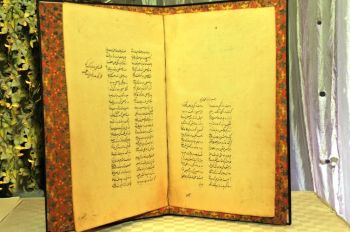
A Qasida is a poetical expression which was part of the historical tradition of the Ismailis of Central Asia and Persia and is now being shared by Ismailis around the world. This is a marvellous Qasida which in seven verses conveys all the essential concepts of an esoteric tradition – the importance of personal search for spiritual enlightenment, the need to transcend the duality of soul and body, obedience to the command of the spiritual guide and the significance of pleasure and pain in that context, accessing the inner reservoirs of peace and happiness as opposed to external ones, the importance of engaging in the constant battle to overcome our lower selves (nafs) and the power of self-sacrifice and renunciation to uplift and transform societies.
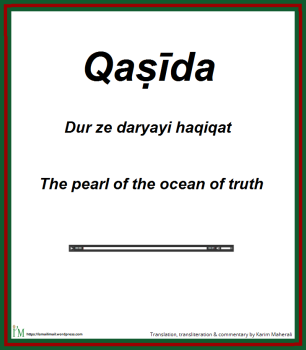 Mawlana Hazar Imam recently in his speech delivered at inauguration of the Naryn campus of the University of Central Asia said about the region: “This region is where algebra got its name, where the earth’s diameter was precisely calculated, where some of the world’s greatest poetry was penned.” This Qasida was penned by Nasir Khusraw who lived in Central Asia and it truly reflects the above sentiments of the Imam.
Mawlana Hazar Imam recently in his speech delivered at inauguration of the Naryn campus of the University of Central Asia said about the region: “This region is where algebra got its name, where the earth’s diameter was precisely calculated, where some of the world’s greatest poetry was penned.” This Qasida was penned by Nasir Khusraw who lived in Central Asia and it truly reflects the above sentiments of the Imam.
To illuminate the esoteric concepts alluded above, a commentary is given with reference to Farmans, and verses from Holy Qur’an, Ginans, Mowlana Rumi’s poetry and Bhagavad Gita.
Transliteration and Translation
dur ze daryayi haqiqat gawhar andar kan-e-tust ham tui ghawas-e-ma’ni durr-e- jan janan-e-tust…..1
The pearl of the ocean of the truth is in the kernel of your being. You are the diver in the ocean of reality, while your beloved is the pearl of your spirit.
tu bakul bina na’i zan dar tu birah manda’i
tu bakul bina shawi jan-u-jasad yaksan-e-tust…..2
You are not aware of the truth, thus you have lost the right path, if you become aware of the reality, your body and soul will be alike.
tu bafarman nisti zan nist farmanat rawa
gar tu farman burda’i farman-e-haq farman-e-tust…..3
Because you do not follow the farmans, hence your instructions are not acceptable to others. However, if you obey the farmans, then the command of the truth will become your command.
tashna-e-abe-hayat ta chand bashi tashna lab
hazir-e-khud bash kin sar chashma dar aiwani tust…..4
Oh you who is thirsty for the water of life, how long will you remain thirsty? Be aware of yourself, the source of the water of life is in your own being!
andaran bustan ke gul ba kharha ham rasta and
khar-u gul yak san shumar kin har du dar bustan-e-tust…..5
In the garden of your existence, where flowers and thorns have grown together, treat them alike as both belong to your garden.
andaran ma’idan ke haryak digari ra afganad
gar tu khud ra afgani ma’i dan-e-haq ma’i dan-e-tust…..6
In the physical battle-field fighters subdue one another, but if you subdue your lower self, the field of truth will become yours.
nasir khusraw chi khush gufti ba ma’ni harf-e-rast
jan-e-khud isar kun ta jan-e janan jan-e-tust…..7
O Nasir-e-Khusraw how wonderfully and meaningfully you’ve stated the right words. Sacrifice yourself so that the soul of the souls will become yours!
Commentary
Verse 1 alludes to God not being out there subject to endless and useless intellectual speculation and debate, but rather He is in the inner most part of our being and is realizable through personal search which is symbolized by the diver. There is a verse of the Ginan Sloko Motto which states:
satgur kahere: deelmaa(n)he deval pujee-e
ane deelmaa(n)he dev duvaar
deelmaa(n)he saa(n)yaa aape vase
ane deelmaa(n)he aape deedaar…..1
The True Guide says: Worship the Lord in the heart (the kernel of existence), and in the heart is the abode of the Lord. In your heart the Lord resides, and in the heart He bestows His Vision.
There is also a prophetic hadith which states:
“I was a hidden treasure and I wanted to be known, so I created the world.”
Hence the purpose of our existence is to know God through means of His creation. In this respect Allah has sent his signs through which we may know Him:
“We will show them Our Signs in the universe, and in their own selves, until it becomes manifest to them that this is the truth” [Fussilat 41:53]
Verse 2 relates to the nature of the relationship between the soul and body which in ordinary experience is perceived as a separation or a duality; and how through correct understanding derived from the awareness of reality through spiritual elevation, one can experience them as one.
Paramahansa Yoganada in his commentary of Bhagavad Gita (II: 24) explains:
“Every man is a soul and has a body. Through delusion, he constantly finds his soul identified with the body; thus he ascribes himself all the bodily limitations. It is the body that can be cut, burned, wetted, dried, hurt, made restless; moved from one place to another, yet able to occupy only one place at a time because it is circumscribed by a small space; and it is short-lasting. So the individual identified with the body thinks that it is he who is thus afflicted and then subjected to the final indignity of death!
The man of Self-realization, on the other hand, knows himself to be the soul – omnipresent, eternal, and ever undisturbed in the largest and tiniest caves of vibrations.
The paradox of delusion is possible because man, as mortal, is a mixture of the changeless soul and the changeable body. If he wants to avoid permanently all forms of misery, he must learn soul identification.”
When an enlightened person overcomes the limitations of the body, he perceives through the eyes of the soul.
Mowlana Sultan Muhammad Shah made the following Farman:
“When one is not able to know the origin (asal), what is then gained? Murtaza Ali has made a Farman: “He who knows himself, it is as if he knew God.” Wherever I look, I see the soul-friend. When you look at a man, you see his face. His hands, feet, mouth are all visible, but the soul is not visible to you. You must seek to see the soul (ruh).” (Farman No.160, Dar-es-Salam, 29-09-1899)
Verse 3 highlights the importance of farmanbardari (obedience to the spiritual master). When a murid (disciple) obeys the Imam, he makes the Imam happy and the Imam seeks to return that happiness. As the murid‘s love increases he begins to attract more love of the Imam until he attains the Deedar (Spiritual Vision) and in the process detaches himself from the world. When that happens, he acquires haqiqati (enlightened) eyes and ears as per Mowlana Sultan Muhammed Shah’s Farman:
“If a person keeps such a fast that he stays aloof from the taste of the entire worldly existence, then his batuni (inner) eyes and ears will open. A human being does not have the capability of creating a man, but he may see in such a manner that he gets to know God’s mysteries and wonders. (Farman No. 17, (Manjevaadi 28-12-1893) )
There is a hadith which states:
“Allah, the Almighty said, ‘Whoever has mutual animosity with a friend (wali) of Mine, I declare war upon him. My servant does not draw near to Me with anything more beloved to Me than the religious duties that I have imposed upon him; and My servant continues to draw near to Me with supererogatory works so that I would love him. And when I love him, I am his hearing with which he hears, his seeing with which he sees, his hand with which he strikes, and his leg with which he walks. Were he to ask of Me, I would surely give him; and were he to ask Me for refuge, I would surely grant it to him.”
A farmanbardari murid acquires perfect understanding of the world and God, through the hearing and seeing of God. Hence his command becomes the command of God.
Verse 4 alludes to the interior of our being as the source of spiritual sustenance and nourishment. The water of life which keeps us constantly fresh and hydrated is within us. There are verses from the Ginan: Abadu Man Jeete Man Ichha Fal Upaje which state:
abdhu ghatt maa(n)he reedh seedh hay, ane ghatt maa(n)he anhad chaalaa;
ghatt maa(n)he bhaag lagaayaa baabu, ghattmaa(n)he see(n)chann
haaraa abdhu…..19
O slave! Real prosperity and success is in the heart, and there are unlimited movements in the heart. In the heart is the garden of fortune, brother, and in the heart is the waterer (of mercy).
abdhu ghattmaa(n)he navkha(n)d peerodhamee, ane ghattmaa(n)he hay kevalaasaa*;
ghattmaa(n)he saat samuddhra kaa vaasaa, gur beenaa jaay peeyaasaa abdhu…..20
*kevalaas – one of the peaks of the Himalayas
O slave! In the heart is the expanse of the earth with nine continents, and in the heart is one of the peaks of the Himalayas (the entire creation encompassing the horizontal and vertical limits is in the heart). The heart is the place of the seven seas (of mercy), but without the Guide one goes thirsty (the Guide opens the doors to the seven oceans(heavens)).
The Quranic vision of paradise as expounded by Lex Hixon in his meditations of Quranic Ayats 47:14-15 in his book: The Heart of the Qur’an alludes to the nature of Divine sustenance:
“Those immersed in authentic awe of Allah Most Sublime live on the level of Paradise, the fragrant gardens of pure consciousness where four rivers eternally flow. Divine Clarity is the river of transparent water, free from the slightest impurity that refreshes the soul and slakes its thirst. Divine Knowledge is the river of sweet milk that nourishes the soul perfectly and never turns sour. Divine Bliss is the river of delicate wine that inebriates the soul who ascends in ecstasy. Divine Love is the river of clarified honey, the golden essence of mystical union. On the level of awareness called Paradise grow incomparable fruits, the countless Attributes of Allah Most High. There the soul is cleansed completely by the Divine Forgiveness that flows from the Source of Love. But on the level of awareness called Hell, the intense Splendor of Allah is falsely perceived as unbearable fire, and souls experience the terrors that they dream through their own chronic state of negation as boiling water which scalds their very being as they try to drink. My beloved, how can these two levels be compared?”
Hence being on Siratal Mustaqueem (The Right Path) under the Guide opens the inner reservoir of peace and joy and the spiritual thirst quenched.
Verse 5 expresses the vision of an enlightened person. The existence seen through the eyes of such a person is a perfect garden wherein roses (pleasures) are mixed with thorns (pain). The thorns and the roses appear alike, both serving a beneficial purpose for the garden.
Those on the Right Path consider the pleasurable and painful experiences as being the same as through the mercy of the Lord, the sour and bitter turn to sweet as per verses of the Ginan: Saami maaraa ji unniyaa bhi unniyaa:
saamee maaraajee hareeyaa so hareeyaa ne sukaabee hareeyaa
jo hove najar tamaareeyaa(n) jee…..4
Oh my Lord! The fresh and green ones will remain fresh and green
and the dry and withered ones will also become fresh if they are
encompassed by Your merciful sight.
saamee maaraajee meetthaa so meetthaa ane kaddavaa bhee meetthaa
to aa gur ke vachane fal meetthaddaa jee…..5
Oh my Lord! Tthe sweet ones will remain sweet and the sour ones will become sweet. Through the (obedience to the) commands of this Guide all the fruits (of our actions) will become sweet.
The above ideas are echoed by Mowlana Rumi:
“With will fire turns to water, without will even water turns to fire.”
Another way of looking at it is by considering the hadith of the Prophet:
“Paradise is encompassed with things disliked, and hell with things desired”.
Verse 6 alludes to the importance of winning the constant struggle against our lower selves. The battle and struggle against our lower selves is called the Greater Jihad (Holy war). The victory gives the person the sublime experience of Divine companionship and success.
A verse from the Ginan: Aava gur nar saami ne sreviye states:
ejee aavaa pa(n)j bhu vas karee, chaare jug ni kalaa gur nee joelaa;
karoddee tetrees devataa naa melaa maa(n)he hoelaa…tam su(n)…..3
By thus subduing the five passions viz lust, anger, attraction of the illusion, greed and pride, the Guide’s marvellous power that endures through the four ages is seen, and one enters the company of the thirty-three crores of deities.
In a verse of Kalame Mowla it is stated:
jehaad karanaa kaafarse(n)thee, e kalaam-me(n) hukam hae rabakaa;
to baddaa kaafar hae nafas amaaraa, sahee bujo ba(n)de sabakaa;
to jees ba(n)dene nafasku(n) maaraa, une fateh paaee donu(n) jahaan;
jo koee taabe manke rahyaa, to donu(n) jahaanme(n) huaa pashemaan…..60
To wage Holy War against an infidel is the command of the Lord. But a greater infidel is your lower self (nafs -e- amaaraa). Know this as true for all. The one who has defeated the lower self, has indeed achieved success in both worlds. The one who surrenders to the mind (lower self), is miserable in both worlds.
Verse 7 highlights the concept of sacrificing oneself in the course of following the principles of our Tariqah and the ultimate reward for doing so. The concept is sometimes framed as dying before death. Mowlana Rumi in his poem below illuminates this concept beautifully.
Die now! die now!
In this Love, die;
when you have died in this Love,
you will all receive new life.
Die now! die now!
and do not fear this death,
for you will come forth from this earth
and seize the heavens.
Die now! die now!
and break away from this carnal soul,
for this carnal soul is a chain
and you are as prisoners.
Take an axe to dig through the prison;
when you have broken the prison you will be kings and princes.
Die now! die now!
before the beauteous King;
when you have died before the King,
you will all be kings and renowned.
Die now! die now!
and come forth from this cloud;
when you come forth from this cloud,
you will be radiant full moons.
Be silent, be silent;
silence is the sign of death;
it is because of life that you are fleeing from the silent one.
(Poem no. 80, Mystical Poems of Rumi 1, translated by A.J. Arberry)
Related


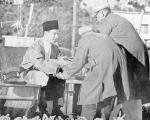























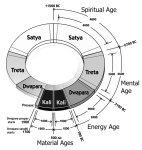

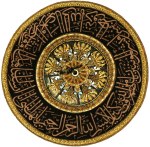


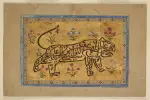


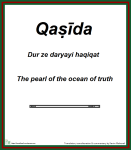
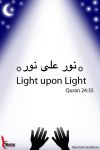



I sing this qasida beautifully! I love this Qasida
LikeLike
Thanks
LikeLike
Beautiful Qasida and an amazing translation. I especially enjoyed melding with Farmans, Quran, Rumi, Ginan, Gita and Yogananda!
Very well done. Thank you.
LikeLike
Neat.
LikeLike
Peerless Qasidah, indeed
LikeLike